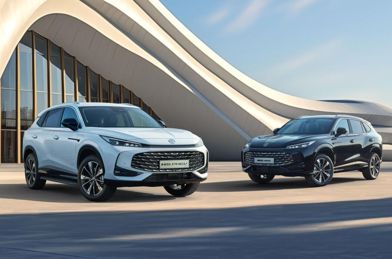In a statement released earlier this week, Saab owner NEVS (New Electric Vehicle Sweden) and Dongfeng confirmed that they had signed a long-term "strategic co-operation agreement ... to achieve global industrial synergies".
As part of the agreement, Dongfeng will help Saab develop and bring to production "new energy" vehicles, a term often used in China to describe pure electric and plug-in hybrid cars. Dongfeng will also help NEVS construct a factory and R&D facilities in the northern Chinese city of Tianjin.
In return for access to the Chinese company's supply network and support, NEVS will assist its larger partner in getting vehicles ready for the European and North American markets, both technically and in terms of regulatory compliance.
"This co-operation is one of the steps for NEVS to become a front-runner in the automotive industry, with focus on electric vehicles", said Mattias Bergman, president of NEVS. According to NEVS, the two companies have been working together on projects since July 2015.  Dongfeng currently has a 14 percent stake in PSA Peugeot Citroen, and also operates joint venture factories in China with Nissan, Kia, Renault and Infiniti, as well as with Peugeot and Citroen.
Dongfeng currently has a 14 percent stake in PSA Peugeot Citroen, and also operates joint venture factories in China with Nissan, Kia, Renault and Infiniti, as well as with Peugeot and Citroen.
According to the Chinese car maker, it produced 3.83 million vehicles in 2014 and has so far produced 1.83 million cars this year. Neither company has commented on the financial details related to the deal.
In December 2014, NEVS stated that it was in discussions with two Asian manufacturers, one of which was interested in purchasing a majority stake in the company.
NEVS did not state when, or if, it will restart production of the 9-3. Indeed, it's still not entirely clear if NEVS still has rights to the Saab name, which it may have lost when it entered court-controlled administration in August 2014.
The company halted 9-3 production in May 2014 due to cash flow problems, with the last car sold in Sweden at the beginning of 2015.




